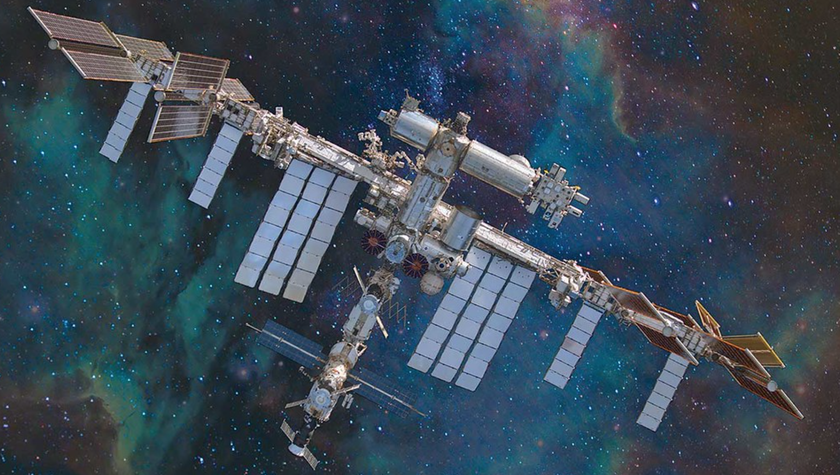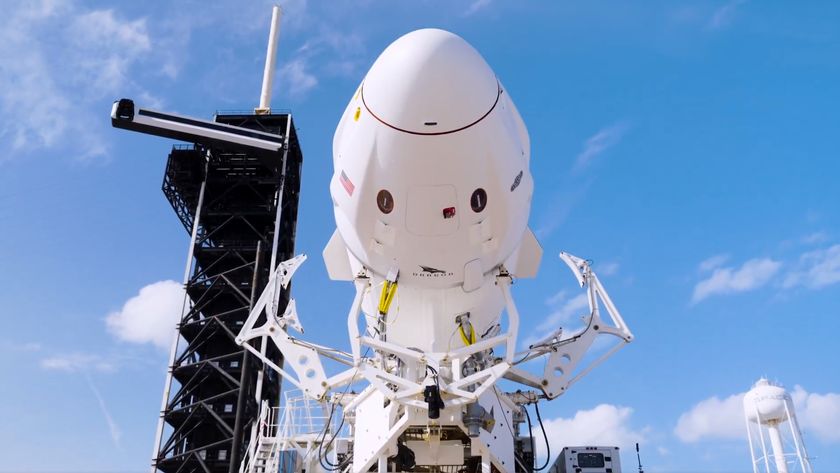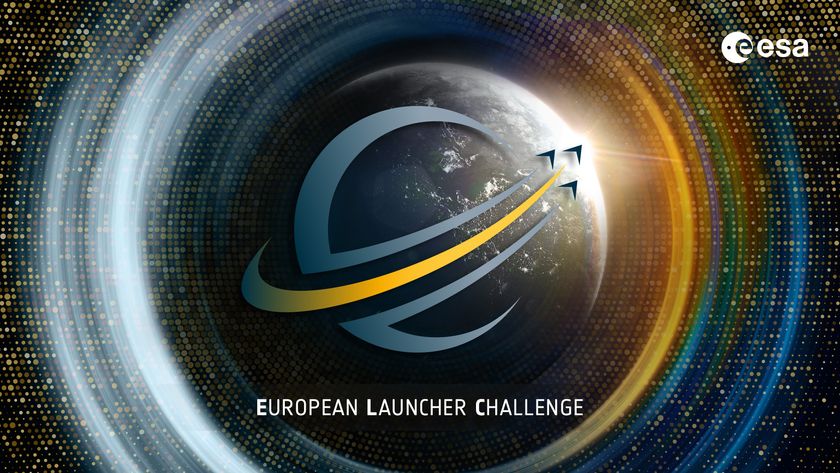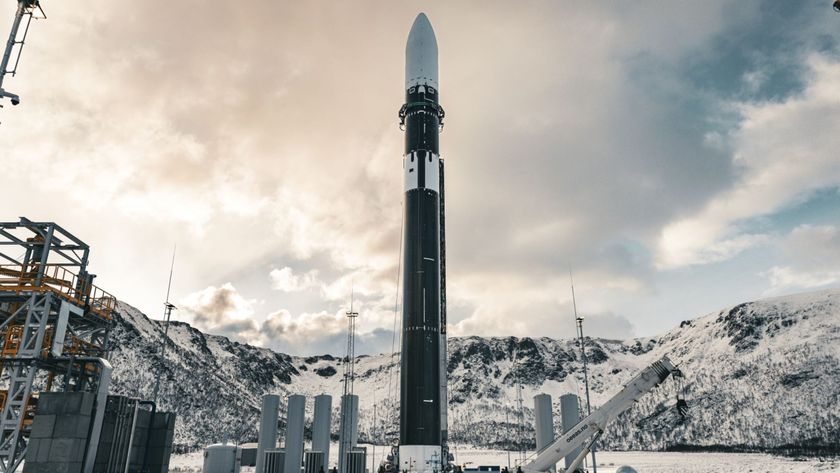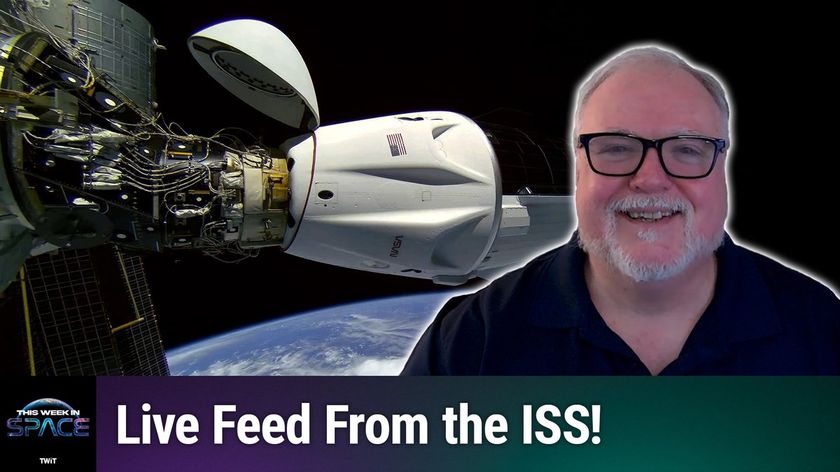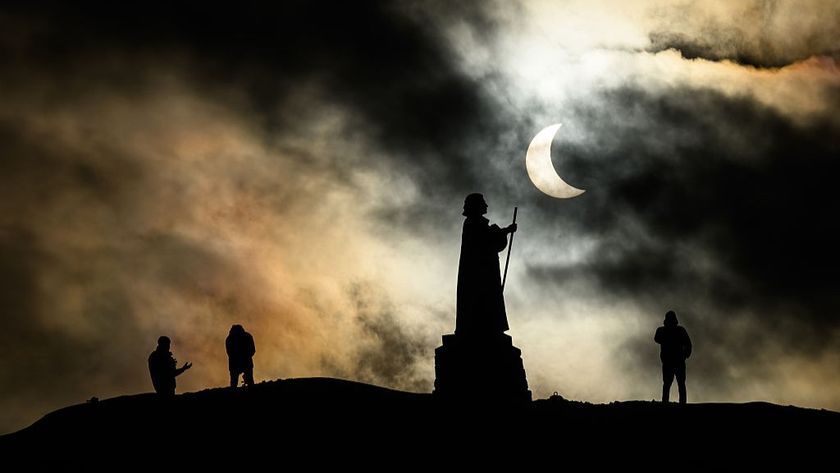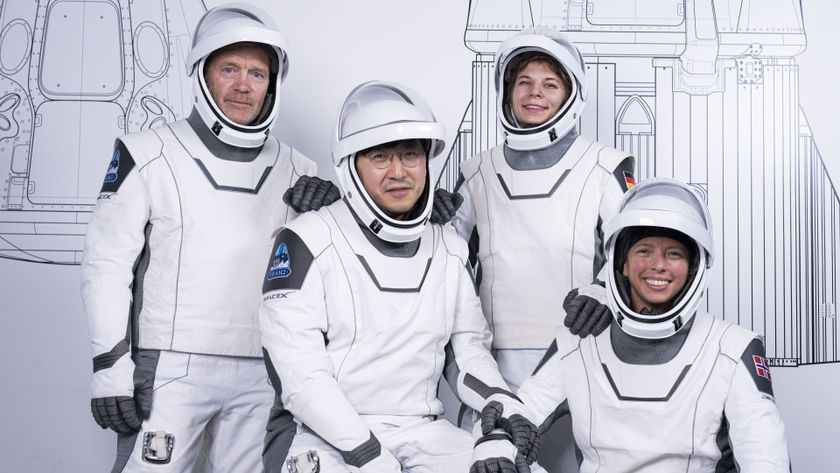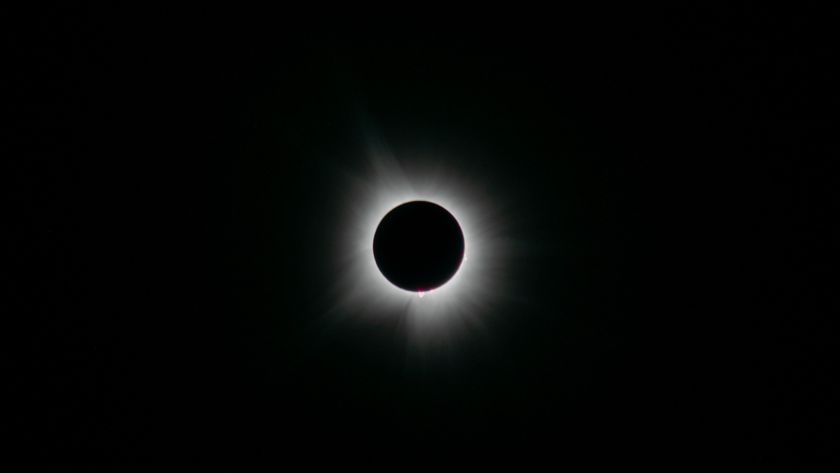Russian Space Cargo Ship Suffers Glitch After Launch
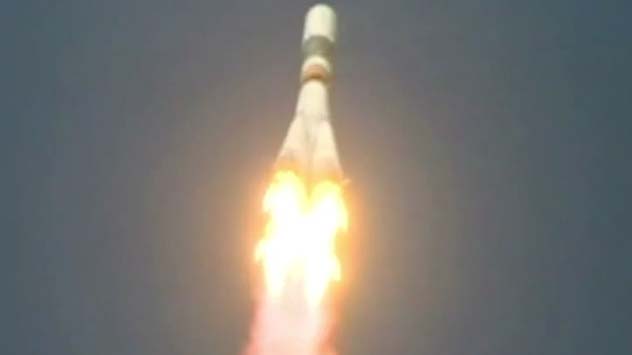
An unmanned Russian cargo spacecraft launched toward the International Space Station this morning, but once in orbit, the capsule encountered a problem, officials said.
The Progress 51 supply spacecraft failed to deploy an antenna used for navigation after lifting off from the Baikonur Cosmodrome in Kazakhstan at 6:12 a.m. EDT (1012 GMT). Specifically, the antenna is used to "measure the orientation" of the ship, NASA officials said.
Ground controllers are now working to assess and fix the problem.
"Update: Once in orbit, an antenna used as a navigational aid on the Progress did not deploy," officials from NASA wrote on Twitter after the glitch was discovered. "Russian ground controllers are assessing a fix."
Progress is scheduled to dock with the International Space Station on Friday (April 26) at 8:26 a.m. EDT (1226 GMT). While some Progress spacecraft can launch and dock on the same day, that wasn't possible with this particular launch due to orbital dynamics, so the vehicle will take two days to catch up to the International Space Station in orbit.
It is unclear whether the scheduled docking time will be affected by the glitch.
"The Russian flight controllers are continuing to monitor the spacecraft and to determine if there is a way to get the antenna deployed," NASA spokesman Josh Byerly wrote SPACE.com in an email. "They are also analyzing ways to dock the Progress to the station in its current configuration, including having the crew perform a manual docking."
Get the Space.com Newsletter
Breaking space news, the latest updates on rocket launches, skywatching events and more!
Progress is slated to deliver 1,764 pounds (800 kilograms) of propellant, 57 pounds (26 kg) of air, 48 pounds (21 kg) of oxygen, 926 pounds (420 kg) of water and 3,348 pounds (1519 kg) of experiment hardware, spare parts and other supplies to the residents of the space station, NASA officials said.
Canadian Space Agency astronaut Chris Hadfield currently commands the six-person crew that staffs the $100 billion orbiting laboratory. NASA astronauts Chris Cassidy and Tom Marshburn as well as Russian cosmonauts Roman Romanenko, Pavel Vinogradov and Alexander Misurkin round out the Expedition 35 crew.
Hadfield, Romanenko and Marshburn are expected to return to Earth in May after six months onboard the station, at which point Vinogradov will take over as the commander of the Expedition 36 mission.
Follow Miriam Kramer on Twitter and Google+. Follow us on Twitter, Facebook and Google+. Original article on SPACE.com.
Join our Space Forums to keep talking space on the latest missions, night sky and more! And if you have a news tip, correction or comment, let us know at: community@space.com.

Miriam Kramer joined Space.com as a Staff Writer in December 2012. Since then, she has floated in weightlessness on a zero-gravity flight, felt the pull of 4-Gs in a trainer aircraft and watched rockets soar into space from Florida and Virginia. She also served as Space.com's lead space entertainment reporter, and enjoys all aspects of space news, astronomy and commercial spaceflight. Miriam has also presented space stories during live interviews with Fox News and other TV and radio outlets. She originally hails from Knoxville, Tennessee where she and her family would take trips to dark spots on the outskirts of town to watch meteor showers every year. She loves to travel and one day hopes to see the northern lights in person. Miriam is currently a space reporter with Axios, writing the Axios Space newsletter. You can follow Miriam on Twitter.
